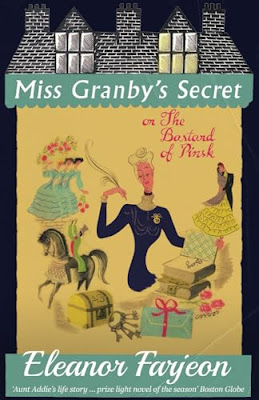 |
| The Unexpected Mrs. Pollifax / Dorothy Gilman NY: Random House, 1983, c1966. 204 p. |
Another "Mrs." today, and it was an unexpected delight! I heard this one being talked about, felt a sudden urge to read this series, and then came across a copy of volume one randomly. It was a sign.
Mrs. Pollifax is a retired widow who decides to tour CIA headquarters on a trip to Washington, with the cunning plan in place to volunteer as a spy, once she can get someone to listen to her. She is mistaken for an agent by a series of miscommunications, and sent off to Mexico as a courier - an easy job with the additional bonus of a week's vacation in Mexico. But of course things do not turn out as planned.
I was surprised by the mix of cozy and thriller in this book. There were violent deaths and suspense and bad people, alongside Mrs. Pollifax's irrepressible cool-headed assessment of the many pickles she finds herself in. I found it an engaging read, lots of fun and suspenseful, and as the title notes, quite unexpected! The writing and plot holds up, for a novel written in 1966. I am now another of the many fans of Mrs. Pollifax and intend to follow up with the whole series if I can.
This was a great choice for some lighter summer reading, and has the perfect blend of humour and irony alongside an actual spy plot. And some great characters. It reminds me a little of Elizabeth Peters' Amelia Peabody books, in feel only as the setting and themes are obviously different, but it had the same vibe and enjoyment factor, for me. Great find!





